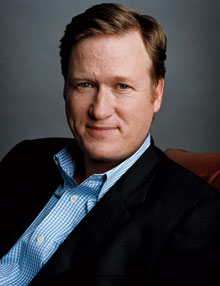A Quote by Joshua Cohen
The Internet is a contest between people with the same name to be the person who dominates that online space.
Related Quotes
More platform-sensitive generations will make distinctions between online and in-person intimacy, whereas fourteen-year-olds have very nuanced online selves and might embody their virtual identity in the physical, analogue version of themselves. They have a much more pluralistic understanding of the self. I don't think we'd be here now in this amazing sexual and gender revolution without the online space where young people can see and share other versions of identity and sexuality.
The Internet is the new public space. And because women are out in public, people don't like that in much the same way that if you're walking down the street you get harassed. I think the same kind of thing happens online, and I think that's why a lot of women are hesitant to put their voice out there.
Or, if I take that same auditorium and I make it much bigger and put more space between seats, it'll be quieter because it's much harder when you're not in physical contact with people to spread a virus from person-to-person, right? There are all sorts of patterns that we see in epidemiology that help us understand why something spreads.
Before Rocky III, I was minding my own business, there was a Tough Man contest. I won that contest two years in a row and I didn't win because I was the toughest, the roughest or the baddest. I won when I was training for the contest, I told my pastor "They're having a contest and when I win the contest I'm a give you the money so you can buy food and clothes for the less fortunate people in the community." That was what Mr. T was about, that was back in 1979. I didn't have a car then but that's what I'm about.
[On the Internet and activism:] The danger of the Internet is cocooning with the like-minded online - of sending an email or twitter and confusing that with action - while the real corporate and military and government centers of power go right on. In a way, the highest purpose of the Internet is to bring us together for empathy and action. After all, the reflector cells and empathy-producing chemicals in our brains only work when we're physically together with all five senses. You can't raise a baby online.
The same person who would never raise his hand in a lecture hall of two hundred people might blog to two thousand, or two million, without thinking twice. The same person who finds it difficult to introduce himself to strangers might establish a presence online and then extend these relationships into the real world.
One of the more popular activities was “Talk-O-Matic”. Five people at a time could write messages, and read each other's messages, on the same screen. Today, Internet chat rooms work on the same principle. One of the remarkable new features of this page was that you could log in with an invented name, and pretend you were anyone you wanted - any name, any age, any gender. One favorite trick was to log in using the name of someone else already logged into the page, simply to confuse everyone else.







































